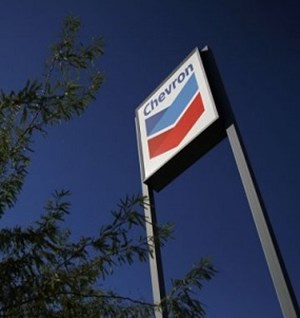Chevron slashes California spending on ‘adversarial’ fossil-fuel policies
(Bloomberg) — Chevron Corp. is slashing oil-refinery investments in California because of “adversarial” policies toward fossil fuels, a move that may boost what already are the highest pump prices in the nation.
The oil giant headquartered in the San Francisco Bay area has cut spending in the Golden State by “hundreds of millions of dollars since 2022,” according to comments filed with the California Energy Commission this week. Chevron is a key supplier of jet fuel to the San Francisco and Los Angeles airports.
The comments come as California lawmakers consider limiting the profits in-state refiners can reap. The most-populous U.S. state already has the nation’s toughest fuel standards as well as a carbon cap-and-trade program that critics say forces consumers to pay more at the pump.
“California’s policies have made it a difficult place to invest so we have rejected capital projects in the state,” Andy Walz, president of Chevron’s Americas Products business, wrote in the filing. “Such capital flight reflects the state’s inadequate returns and adversarial business climate.”
As recently as September, Governor Gavin Newsom accused the oil industry of lying about climate change, and the state has sued Chevron and other companies for reaping excessive profits at the expense of residents and the environment. Chevron rejected those claims, saying that halting climate change requires a global policy response rather than lawsuits.
The governor’s office didn’t immediately respond to a request for comment for this story.
Newsom last year announced a plan for California to reduce climate-damaging emissions 85% by 2045 and cut gasoline demand by 94% during the same time frame. On some levels it’s doing well. The state has the highest electric-vehicle adoption rate in the country and its conventional diesel demand has fallen by half since 2016 amid rising production of low-carbon alternatives such as renewable diesel and biodiesel.
But California is still the country’s largest consumer of jet fuel, for which there’s currently no practical low-carbon alternative, and the second-largest user of gasoline. The state’s pump prices are typically the highest in the country, this year averaging 35% above the nationwide average, according to data compiled by Bloomberg.
Refining capacity has shrunk in California in recent years, partly due to some facilities converting to renewable diesel, and partly due to the outlook for fuel demand. But Chevron believes the state’s policies and business environment are also playing a major role.
Punitive rules that restrict investment have “severely limited refiners’ ability to react to higher prices,” Walz said. “California’s policies not only have neglected to respond to the increasing supply-and-demand imbalances — they have worsened them.”



